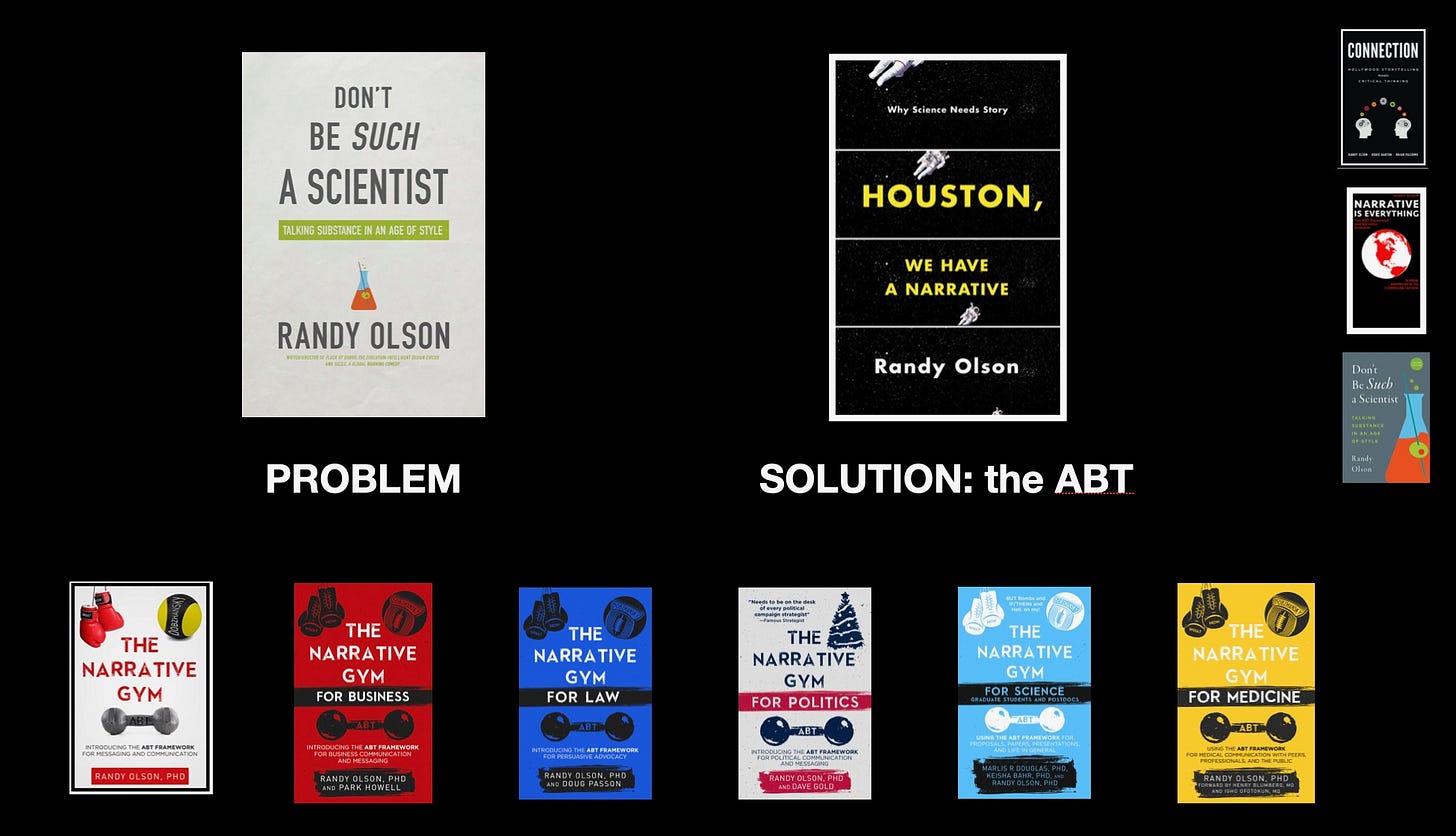I’ll wager that most of you have already heard or read Ezra Klein’s powerful audio “Don’t Believe Him” manifesto examining Trump’s take on Steve Bannon’s longstanding “flood the zone” strategy designed to overwhelm media and institutional capacity to convey and challenge his unfolding demolition derby presidency.
If not, here’s the captivating opening. But it’s vital to get past the initial statement about Bannon’s strategy.
In his piece, Klein notes Trump is already getting caught up in his own flood tides, with initial overreaching steps already facing legal setbacks and more resistance likely.
That may add up and stall Trump out in the long run, but in the short run substantial human harm is unfolding. Read Nicholas Kristof today for the impacts at the US Agency for International Development: The World’s Richest Men Take On the World’s Poorest Children.
After watching Klein, I wondered what my old friend Randy Olson - a brutally honest communication strategist - would think about how the wide-field “flooding the zone” strategy relates to Trump’s superskill - holding to an almost primally simplistic story line.
Listen to our pop-up Sustain What chat above and/or please share this post or share the webcast on X/Twitter, Facebook, LinkedIn or YouTube.
Olson began his professional life as a marine biologist, shifted to filmmaking and now mainly works with science-based organizations to improve their impact through refining their narrative strategies. He’s produced a batch of books that amount to workouts at what he calls The Narrative Gym.
Here are just a few of the books and other references Olson cited or recommended in our conversation:
I brought up a new study showing a pattern of u-turns toward healthier democracy after autocrats take and then lose power (I’m planning a chat with the authors); Randy countered with a sobering December 2016 New York Times column by Eduardo Porter referencing The Great Leveler, a book by Walter Scheidel, a professor of history at Stanford, who found:
From the Stone Age to the present, ever since humankind produced a surplus to hoard, economic development has almost always led to greater inequality. There is one big thing with the power to stop this dynamic, but it’s not pretty: violence.
He noted the relationship of the zone flooding strategy to the “Gish Gallop,” which emerged from the creationism arguments of Duane Gish.
Read The Economics of Attention - Style and Substance in the Age of Information, by Richard A. Lanham.
Read Neil Postman’s Amusing Ourselves to Death: Public Discourse in the Age of Show Business. In the short run, you might read the 2017 Guardian op-ed by Postman’s son Andrew Postman: “My dad predicted Trump in 1985 – it's not Orwell, he warned, it's Brave New World.”
Read Gary Keller’s bestseller The ONE Thing: The Surprisingly Simple Truth About Extraordinary Results, or watch the scene in the 1991 film “City Slickers” when the crusty cowboy played by Jack Palance tells Billy Crystal’s character about the importance of pursuing “one thing.”
Here’s one of my earlier Sustain What chats with Randy:
Is science communication really worse than it was 100 years ago? Can simplicity help?
Click here for my Randy Olson coverage in The New York Times.

















Share this post